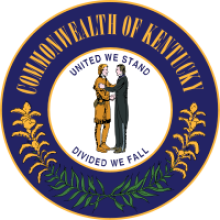
Fast, affordable Internet access for all.

The National Rural Assembly, an advocate for America's hinterland, continues to track harmful legislation moving through the Kentucky Legislature. The assembly's Rural Broadband Policy Group in February publicized Senate Bill 135which eliminates the "carrier of last resort" requirement that big telcos provide basic phone basic and 911 service in rural Kentucky (Feb. press release on SB135). The bill's sponsor Senator Paul Hornback attempted to distance the negative publicity of SB 135 by crafting a new Senate Bill 12 with similar language. SB 12 cleared a Senate panel today to the dismay of opponents.
After June 30, 2013, AT&T and other electing "Incumbent Local Exchange Carriers" (ILECs) would no longer be required to provide basic landline telephone service to all persons in a service area, and rural Kentuckians would no longer be assured of access to reliable basic phone service, including 911-emergency service. This bill would be especially harmful for rural people, because they are more likely to be in areas phone companies would decide not to serve, if given the choice. If the Kentucky bill succeeds, we expect major telephone companies to try similar bills in other states. The Rural Broadband Policy Group thinks that both bills need to be killed. After June 30, 2013, AT&T and other electing "Incumbent Local Exchange Carriers" (ILECs) would no longer be required to provide basic landline telephone service to all persons in a service area, and rural Kentuckians would no longer be assured of access to reliable basic phone service, including 911-emergency service. This bill would be especially harmful for rural people, because they are more likely to be in areas phone companies would decide not to serve, if given the choice. If the Kentucky bill succeeds, we expect major telephone companies to try similar bills in other states.
The Rural Broadband Policy Group thinks that both bills need to be killed. Possible repercussions:
- Customers left at the mercy of a utility and its affiliated companies to raise the price for basic service in an area where no other competitor exists.
- Possible "redlining" of poor and remote communities where providing service is more costly or higher-maintenance.
- Strip the Public Service Commission of its authority to protect costumers by investigating complaints regarding basic telephone service quality.
- Carriers could decide to abandon or retire their wirelines, resulting in loss of access to customers by the competitors.
These de-regulation measures are being crafted by AT&T and would also benefit competitors Windstream and Cincinnati Bell. (See our February story Kentucky Bill Could End Rural Telephone Service for Some.) In fact the Lexington KY Herald-Leader's John Cheves reported that Sen. Hornback was flanked by AT&T executives during the panel. Cheves notes:
AT&T has significant clout in Frankfort. It employs 31 legislative lobbyists, including a former PSC vice chairwoman and past chairs of the state Democratic and Republican parties, spending about $80,000 last year on legislative lobbying. Its political action committee has given at least $91,000 in state political donations since 2007.
The committee voted 9-to-1 to approve the bill and send it to the Senate floor. The sole no vote came from Sen. Denise Harper Angel, D-Louisville.
